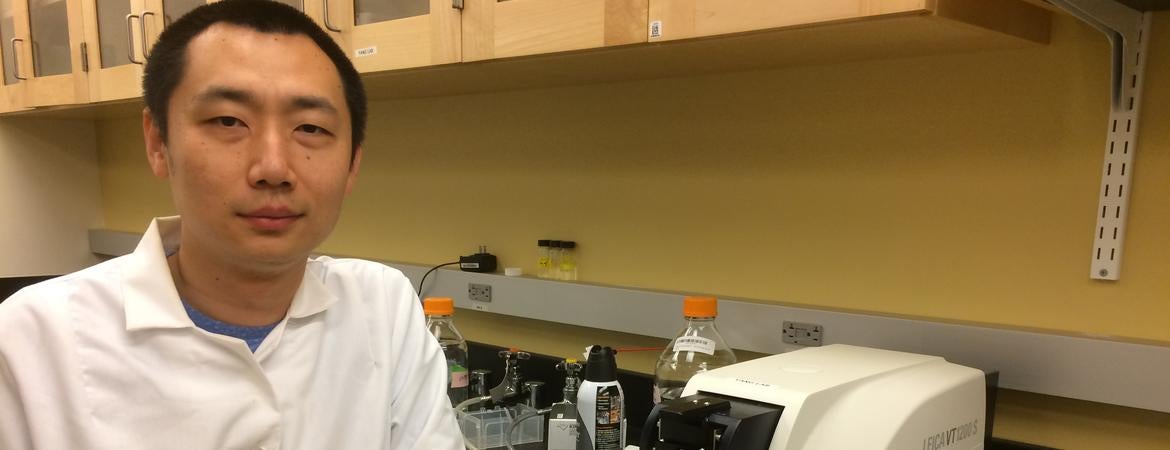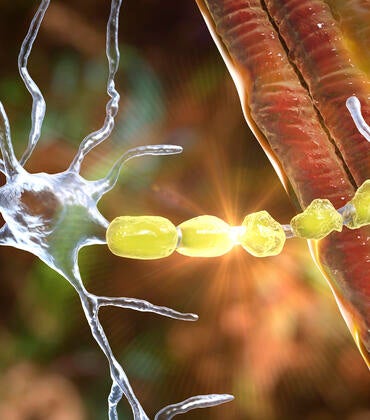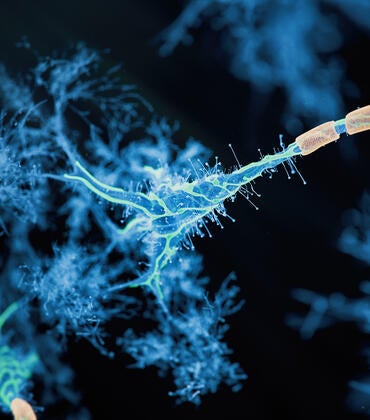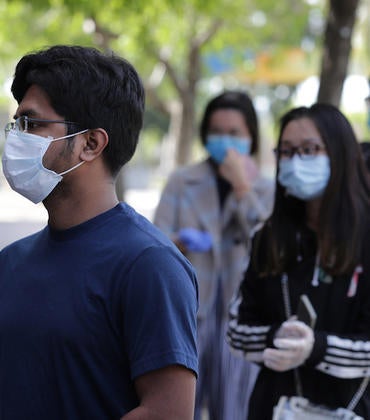
Hongdian Yang, whose research focuses on neural circuit mechanisms underlying sensory perception, has received a Klingenstein-Simons Fellowship Award in Neuroscience, a joint project of The Esther A. & Joseph Klingenstein Fund and the Simons Foundation. Aimed at advancing cutting-edge investigations, the awards are presented to highly promising, early career neuroscientists.
This year, only 13 researchers were awarded the fellowship. Yang, an assistant professor of molecular, cell, and systems biology, is the first researcher at the University of California, Riverside, to receive the prestigious fellowship.
The award totals $225,000 for three years and begins July 1.
“Dr. Hongdian Yang is a highly promising, early career neuroscientist doing leading-edge research on neuromodulation of tactile perception,” said Manuela Martins-Green, chair of the Department of Molecular, Cell and Systems Biology. “I have no doubt he will make major contributions to his field of research in years to come.”
Using a multidisciplinary approach, the Yang lab studies mouse whiskers to better understand the cellular and circuit mechanisms of touch perception. The fellowship will support the lab’s research to investigate how the noradrenergic system in the brain modulates tactile perception, which has the potential to help better understand neurological disorders.
“I am grateful to The Esther A. & Joseph Klingenstein Fund and the Simons Foundation for awarding me a fellowship,” Yang said. “The fellowship will allow my lab to focus on understanding the functions of a specific group of cells in the midbrain. These cells release a neurochemical, noradrenaline, and have been implicated in attention- and anxiety-related neurological diseases. By understanding how the noradrenergic cells function under normal conditions, we can be better prepared to explore how their dysfunction contributes to diseases.”
Yang came to UCR in 2016 from Johns Hopkins University, where he was a postdoctoral scholar. He received his bachelor’s degree in physics from China’s Nanjing University, and his doctorate in biophysics from the University of Maryland, College Park.



